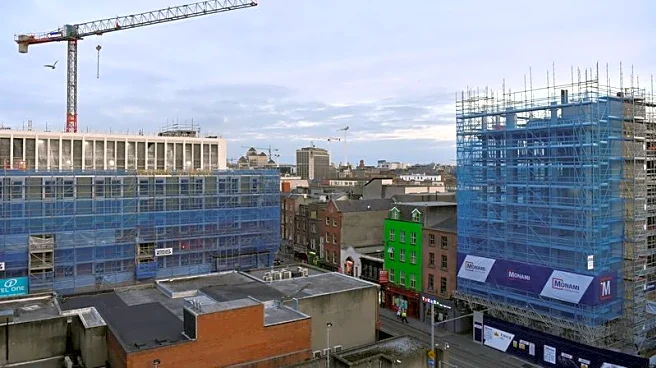DUBLIN (Reuters) -Growth in Ireland's manufacturing sector slowed to its weakest level in 10 months in October, as production volumes stagnated and new business growth eased amid subdued export sales,
a survey found on Monday.
The AIB Ireland Manufacturing Purchasing Managers' Index (PMI) fell to 50.9 in October from 51.8 in September, above the 50.0 mark that separates growth from contraction where it has remained for the whole of 2025.
Production volumes were unchanged in October, ending a nine-month streak of expansion. New business growth was only marginal, with manufacturers citing intense competition and weaker demand from European markets as key challenges.
Employment growth continued for the eleventh month, though at a slower pace, as some firms reported that skill shortages had held back hiring.
Input cost inflation dropped to a 17-month low, driven by lower raw material prices, though higher wages and energy costs persisted. Output prices rose only marginally and at the slowest pace since May 2024, amid the competitive pressures.
Manufacturers remain optimistic about the year ahead, with 45% expecting production to increase and only 9% predicting a decline, although confidence slipped to a three-month low. New product launches and entry into new overseas markets are seen as potential growth drivers.
Ireland's economy as measured by modified domestic demand, or MDD - officials' preferred metric - has grown strongly in recent years and expanded 3.8% year-on-year in the first half of 2025 thanks to growth in personal consumption, government spending and investment.
Ireland's finance ministry last month increased its growth forecast for the year to 3.3% from 2% previously, after the economy shrugged off any material impact from increased U.S. tariffs on the European Union.
(Reporting by Reuters; Editing by Toby Chopra)











